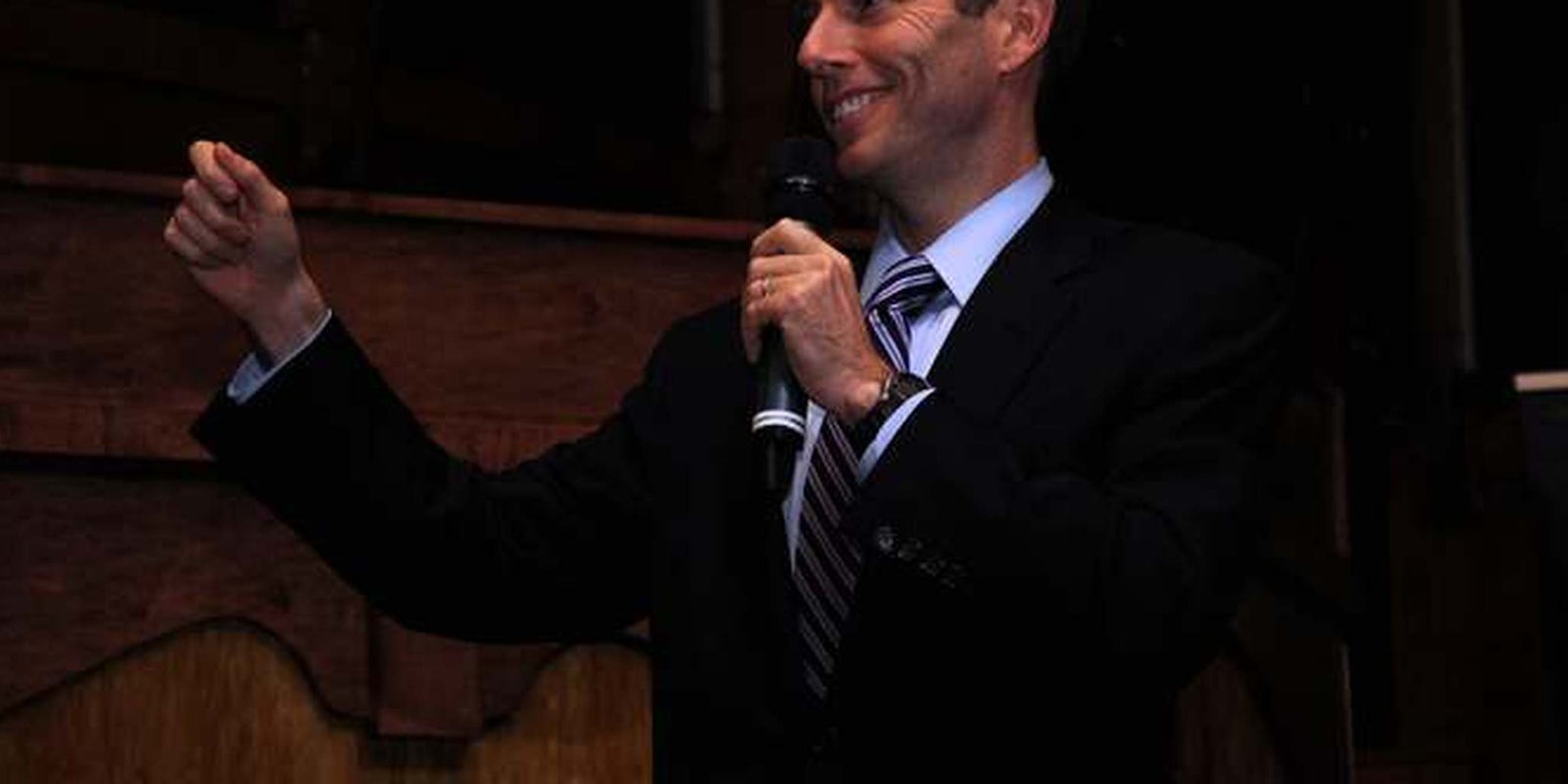In a sense, Uber has been fighting since the day it was born. The San Francisco-based company—which started as a smartphone app letting users hail towncars but has since expanded its offerings to include ridesharing by non-professional drivers—has battled with both government regulators and its taxi industry competitors nearly everywhere has decided to offer its services.
As the company, which was recently valued at $17 billion, plots its path toward world domination, there’s been a concerted public effort by its management to build political clout. Uber’s most high-profile effort in this area came on Tuesday when CEO Travis Kalanick announced that the company had hired former Obama campaign manager and top White House advisor David Plouffe as senior vice president in charge of policy and strategy.
In a blog entry posted to Uber’s website, Kalanick explained what the company was looking for in the position:
“Earlier this year, I made it a top priority for Uber to find a leader who could help cities and citizens understand the Uber mission—someone who believed in our cause, who understood how to build a meaningful brand, who knew how to scale a political campaign, and who knew how to get the support on the ground to win. We needed someone who understood politics but who also had the strategic horsepower to reinvent how a campaign should be run—a campaign for a global company operating in cities from Boston and Beijing to London and Lagos.”
?Over the years, what I’ve come to realize is that this controversy exists because we are in the middle of a political campaign and it turns out the candidate is Uber,” Kalanick continued. ?Our opponent—the Big Taxi cartel—has used decades of political contributions and influence to restrict competition, reduce choice for consumers, and put a stranglehold on economic opportunity for its drivers.”
Plouffe began his political career running campaigns for Democratic politicians like Sen. Tom Harkin (D – Iowa), before becoming deputy chief of staff for then-House Minority Leader Dick Gephardt (D – Mo.). He joined with fellow Democratic strategist David Axelrod to lead Barack Obama’s 2006 senatorial campaign and then went on to lead the candidate’s 2008 presidential effort. In his Nov. 4, 2008 acceptance speech, Obama called Plouffe, “the unsung hero of this campaign.”
Plouffe served as a senior advisor at the White House until last year, when he left to become a contributor to media outlets like Bloomberg TV.
For his part, Plouffe took a similarly aggressive tone against the taxi industry. “We’ll be trying to change the point of view of established politicians, and there’s a lot of resistance coming from people who want to protect the status quo,” he told Politico, which reported that Plouffe and Kalanick were brought together by Obama 2012 campaign manager Jim Messina.
This post is not the first time Ploufee has served as an advisor to major private companies. He has also lent his services to firms like Boeing and General Electric.
Since the money spent by transit-industry startups like Uber, Lyft, and Sidecar is dwarfed by the amount thrown at politicians from the taxi industry, hiring a well-connected, politically savvy insider like Plouffe may go a long way. An analysis by the Sunlight Foundation noted that for every dollar one of these companies gives to politicians, the taxi industry has given $3,500.
Despite Uber’s deep connections to the Democratic party, admiration for the company stretches across the aisle. Earlier this month, the Republican National Committee circulated an online petition calling for Republicans to support the elimination of state and local regulations around the country blocking Uber from legally operating in certain areas.
Uber’s opponents in the taxi industry insist these regulations are important, not only because they ensure passenger safety but also because Uber’s ability to skirt the tight rules controlling virtually every aspect of how taxis operate give the company, and its peers, a significant advantage.
The most obvious example is in pricing. Taxi companies, by and large, do not have the ability to set their own prices; instead, rates are typically dictated by government regulators. Uber, on the other hand, can set prices however it wishes, which is why the company was recently able to announce that it was undercutting taxi fares in New York City. Who’s Driving You, a taxi industry-backed group dedicated to countering ridesharing services like Uber, insists that the costs of operating a taxi are 40 percent higher than operating a car with Uber.
Uber has recently been using this flexibility to diversity its offerings.
In recent weeks Uber has rolled out a handful of new features. It has created a program called UberPool, which allows passengers headed to similar destinations to shire Uber rides and split the cost, as well as a Corner Store program with drivers delivering goods from nearby merchants right to customers’ front doors.
Uber’s tech-friendly, sharing-economy business model is one that’s becoming increasingly popular across the entire tech industry. There are apps that that have been described as Uber for pizza, Uber for airplanes, Uber for dog walking, Uber for hircuts, Uber for photogrpy, Uber for marijuana, and Uber for drones. If Plouffe brings the same political and organization savvy to the company that he did to President Obama’s electoral campaigns, Uber is probably going to have imitators for a long time to come.
Photo by Tkeban Jahannes/Flickr (CC BY-SA 2.0)
